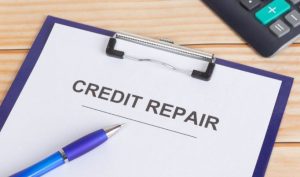Effective Strategies for Repairing Your Credit

Pay to Delete Strategy
If you have insulting items in your credit report, you can opt to pay the unpaid credit balance only if the creditor concurs to delete the items from your credit report. As I already mentioned, don’t agree to a $0 balance appearing on your credit report since this taints your reputation. This will ultimately improve your
rating. Actually, the idea is to ensure that whatever amount you agree to pay doesn’t show up as your last date of activity. If the creditor only cares about their money, why should they bother telling the world that you have finally paid?
In most instances, the creditors often write off debts within just two years of constant defaulting after which this information is sold in bulk to a collection company for some pennies of a dollar. This means that the collection companies will even be just fine if you even pay a fraction of what you ought to pay.
Whatever you pay, they will still make money! This makes them open to negotiations such as pay to delete since they have nothing to lose anyway.
Therefore, only use the pay to delete approach at this level and not any other. Actually, the only other way around it for the collection company is a judgment, which can be costly, so you have some advantage here.
Additionally, use this strategy when new negative items start showing up in your report that could hurt your reputation as a credit consumer.
Also, since the creditors will often sell the same information to multiple collection companies, you might probably start noting the same debt being reported by several companies; use the pay to delete strategy to get them off your report.
You can also use this strategy if you have not been successful in getting items off your credit report using other methods. Opting to go the dispute way might only make the process cyclic, which will be cumbersome, tiresome, and frustrating; you don’t want to get into this cycle.
Now that you know when to use this method, understanding how the entire process works is very critical. To start with, ensure that you get an acceptance in writing if they agree to your times; don’t pay without the letter! After you agree, allow about 45 days for the next credit report to be availed to you by your credit monitoring service. These companies have the legal power to initiate the deletion process, so don’t accept anything less such as updating the balance; it is either a deletion or nothing. If they try to stall the process by saying that they cannot delete, mention that it will only take about 5 min for them to fill the Universal Data Form. Don’t worry if one company seems not to agree with your terms since another one will probably show up and will gladly take the offer.
In any case, what do they have to gain when they keep your debt when you are willing to pay? Remember that the records will just be in your records for 7 years, so since 2 years have already passed, these companies have no choice but to simply let the 7 years pass! However, don’t apply this as an excuse for not paying your debts, since the creditors can sue you to compel you to pay outstanding amounts. This process aims to ensure that whatever bad experience you have with one creditor doesn’t make the others make unfavorable decisions on your part.




